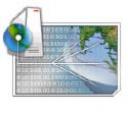 A startup firm named iSekurity has former agents from the various US Federal agencies in their roster is to begin offering Identity theft protection service which may become the start of a new chapter or rather business in the world of industrial espionage and identity theft. These former agents are no strangers to the growing problems associated with identity theft and it is costing money for many US businesses and the people who work for them. From petty credit card fraud to more serious crimes, they’ll tackle them all and they would do it with the same precision and tenacity as they have learned in the service. The President and founder of the company promises to get people who steal identities or give their clients a sum of $11,000 as remuneration for any cases they fail to resolve.
A startup firm named iSekurity has former agents from the various US Federal agencies in their roster is to begin offering Identity theft protection service which may become the start of a new chapter or rather business in the world of industrial espionage and identity theft. These former agents are no strangers to the growing problems associated with identity theft and it is costing money for many US businesses and the people who work for them. From petty credit card fraud to more serious crimes, they’ll tackle them all and they would do it with the same precision and tenacity as they have learned in the service. The President and founder of the company promises to get people who steal identities or give their clients a sum of $11,000 as remuneration for any cases they fail to resolve.
This is in response to growing frustration among people with crimes that have resulted from identity thefts and the company’s crews of over 100 former agents are well versed in the art of surveillance and apprehension.
Private businesses like these, hope to fill in the gap between law enforcement and the public where they can do little to stifle these crimes that often have links to organized crime syndicates. From drug running to many other gang related activities, these guys have done it all. The president of the company was a former Presidential detail to former presidents and has taken the role of leading the Secret Service’s elite CAT or Counter Assault Team. With impeccable records in their former federal duties, criminals have one more group of people to overcome in their endless pursuit of identity theft.
Half a Million IIS Servers Infected with Malware
 Panda software, a developer of security systems and anti-virus software has raised the alarm regarding a massive cyber attack on vulnerable IIS Server based web pages. The malware once it gets in re-directs users to malicious sites from totally legitimate web sites. The infection grew from less than half a million infected servers to almost double that which is quite fast for a specific type of malware. Most developers who employ “code scrubbing”, which is removing information as it is saved into an SQL database are easy prey and are the intended target of the massive attack that is still taking place. An I frame is inserted to redirect users to malicious sites that can lead to identity thefts even with the users not knowing about it.
Panda software, a developer of security systems and anti-virus software has raised the alarm regarding a massive cyber attack on vulnerable IIS Server based web pages. The malware once it gets in re-directs users to malicious sites from totally legitimate web sites. The infection grew from less than half a million infected servers to almost double that which is quite fast for a specific type of malware. Most developers who employ “code scrubbing”, which is removing information as it is saved into an SQL database are easy prey and are the intended target of the massive attack that is still taking place. An I frame is inserted to redirect users to malicious sites that can lead to identity thefts even with the users not knowing about it.
The attack is centered on Microsoft’s IIS web Server in particular ASP pages that have very strong ties to SQL databases. Panda and Fsecure have both identified the hidden code (“) that can be deep in their web pages and advises them to look for the string that re-directs people to other sites. Users and Site Administrators are advised to get all updates from Microsoft to remedy the problem and to halt the spread of this attack once and for all.
All this to bug people who use the web all over the world, in the never ending battle between hackers and those who are up to take them head on.
McAfee Detects Malware aimed at Tibetan Supporters
 The movement to free Tibet from Chinese rule has had several web sites and organizations springing up to fight for Tibetan independence from the Chinese’s Communist Rule. The movement was threatened by the government to be met with force and it indeed was resulting in the much publicized crackdown on the remote Chinese territory. Their discovery of the Trojan, nicknamed FriBet by McAfee is quite unique in the sense that it is the only form of malware that has been specifically designed to attack a specific type of computer, one that supports the Pro-Tibetan movement. The said malware has been identified to have infected two web sites that have expressed support for the movement and the Trojan then seeks all databases that are linked to the said site. Visiting the said infected sites will trigger a seek operation that downloads the payload onto the machine which in turn spreads it to other sites that it visits.
The movement to free Tibet from Chinese rule has had several web sites and organizations springing up to fight for Tibetan independence from the Chinese’s Communist Rule. The movement was threatened by the government to be met with force and it indeed was resulting in the much publicized crackdown on the remote Chinese territory. Their discovery of the Trojan, nicknamed FriBet by McAfee is quite unique in the sense that it is the only form of malware that has been specifically designed to attack a specific type of computer, one that supports the Pro-Tibetan movement. The said malware has been identified to have infected two web sites that have expressed support for the movement and the Trojan then seeks all databases that are linked to the said site. Visiting the said infected sites will trigger a seek operation that downloads the payload onto the machine which in turn spreads it to other sites that it visits.
This raises suspicion though the experts are not raising the idea that it may have been developed to wreak havoc on sites the Chinese government have identified as supporters. The Chinese link has yet to be officially declared but anyone knows these types of attacks are a common practice of hackers. The surprising fact is that it is similar to a patriot which locks in on a target which has been designated by mission control effectively getting its target in any weather. The aiming is quite precise which leads conspiracy theories to the conclusion that it may be an attack on these sites from the inside. Much is to be learned from the Trojan as it is tracked and detected throughout the globe. Major developers of anti-viruses have been able to remove and block it but unprotected machines may prove to be too easy a target for the Trojan.
Paypal Boosts security
 In efforts to boost security, Paypal, one of the premier internet online payment providers is moving to block users who use older browsers to prevent weaknesses that these browsers possess. They have found that many users online still use old Microsoft IE 3.0 and 4.0 which have ended their support life a long time ago hence they do not have the needed updated security updates that are necessary to conduct safe and secure online transactions with regards to payments and other related business. Paypal has had a lot of bad publicity with regards to phishing and infiltration where people intercept and go on fake bidding sprees just to get at the vital financial information that people usually share over the network. In hopes of boosting security, they will be using script detection to begin blocking users and that they do apologize for all the inconvenience this may cause the millions of users who may be affected by their move. This comes as the amount of identity theft and other crimes have increasingly entered their ranks ending in much stolen information that leads to credit card fraud. Being the biggest, they are the most viable target for such hackers and they are trying to boost security on that front of the deal.
In efforts to boost security, Paypal, one of the premier internet online payment providers is moving to block users who use older browsers to prevent weaknesses that these browsers possess. They have found that many users online still use old Microsoft IE 3.0 and 4.0 which have ended their support life a long time ago hence they do not have the needed updated security updates that are necessary to conduct safe and secure online transactions with regards to payments and other related business. Paypal has had a lot of bad publicity with regards to phishing and infiltration where people intercept and go on fake bidding sprees just to get at the vital financial information that people usually share over the network. In hopes of boosting security, they will be using script detection to begin blocking users and that they do apologize for all the inconvenience this may cause the millions of users who may be affected by their move. This comes as the amount of identity theft and other crimes have increasingly entered their ranks ending in much stolen information that leads to credit card fraud. Being the biggest, they are the most viable target for such hackers and they are trying to boost security on that front of the deal.
This would hopefully prevent more cases from developing and that any new ones will be ‘nipped in the bud’ so to speak.
Paypal and eBay have offered select users with a distinct security keys using VeriSign passwords that is to be transmitted during payment transactions which aims to prevent interception of the transaction information as it travels through the internet. Unlike specific credit card transactions that travel through dedicated lines which are now slowly being protected by PCI-DSS for improved security, regular PC do not have that much security hardware installed to protect them from interception by hackers who could tap into the network getting all credit card information for illegal purchases.
Sans Institute – Gotcha!
 The Sans Institute has identified and determined the source of infections to some 20,000 web sites since January through research and extensive review of web sites and how they work. They have identified the point of entry for these attacks which capitalizes on a sneaky tool that uses Google’s search engine as it searches for specific types of vulnerable applications. They have also found that the process is automated, meaning they were not “live” attacks which has a user on the other end initiating it. The search tool works by finding vulnerable software and then executes a simple SQL statement that injects a script tag onto the discovered site. The exploit was designed to target Microsoft Window’s ISS which once infected, has the ability to infect all who visit the site. The sad side is that again, the malware is found and has been traced to report back to China which enforces more need for security on their side of the globe.
The Sans Institute has identified and determined the source of infections to some 20,000 web sites since January through research and extensive review of web sites and how they work. They have identified the point of entry for these attacks which capitalizes on a sneaky tool that uses Google’s search engine as it searches for specific types of vulnerable applications. They have also found that the process is automated, meaning they were not “live” attacks which has a user on the other end initiating it. The search tool works by finding vulnerable software and then executes a simple SQL statement that injects a script tag onto the discovered site. The exploit was designed to target Microsoft Window’s ISS which once infected, has the ability to infect all who visit the site. The sad side is that again, the malware is found and has been traced to report back to China which enforces more need for security on their side of the globe.
Their people were so thrilled at the discovery which they called a “GEM” due to the scarcity of such discoveries in the wild (internet). Discovery of such Trojans and other malware allows prompt response and sending out of updated signatures to anti-virus software and other intrusion prevention tools that prevents the spread to continue. They may have been lucky this time for the majority of malware out in the wild are not only very complex in terms of coding but have the ability to morph into totally different forms as they travel from computer to computer through the internet. The best way to avoid such problems would be to stay off the internet, which is next to impossible due to the current prevalence of the said technology in our everyday lives.
Anti-Virus Programs – Losing Teeth
 Recent studies are showing that having merely traditional Anti-Virus Programs Installed onto a computer is proving to be highly ineffective with today’s code morphing malware. The complexity and uncanny ability of these malware to change signatures defeats most if not all intrusion prevention systems. Hackers have also capitalized on the fact that users trust content that is seemingly from legitimate sources like the recent incident with a Goggle Mail application which is used to archive email from the email company’s servers which incorporated information gathering code. The problem was only found when a programmer unknowingly de-compiled the program and found an email address along with a log-in password to the program author’s mailbox. Upon using the derived information to get into the email account, he found several user information along with usernames and passwords of others who have used the program. He took drastic steps and deleted all information (email) he found not to be the author’s and informed the company which released the program about the incident. The developer simply said an error checking routine or some draft code was arbitrarily left within the released version. They promise not to do so in the upcoming versions of the said archiving program…. Yeah Right.
Recent studies are showing that having merely traditional Anti-Virus Programs Installed onto a computer is proving to be highly ineffective with today’s code morphing malware. The complexity and uncanny ability of these malware to change signatures defeats most if not all intrusion prevention systems. Hackers have also capitalized on the fact that users trust content that is seemingly from legitimate sources like the recent incident with a Goggle Mail application which is used to archive email from the email company’s servers which incorporated information gathering code. The problem was only found when a programmer unknowingly de-compiled the program and found an email address along with a log-in password to the program author’s mailbox. Upon using the derived information to get into the email account, he found several user information along with usernames and passwords of others who have used the program. He took drastic steps and deleted all information (email) he found not to be the author’s and informed the company which released the program about the incident. The developer simply said an error checking routine or some draft code was arbitrarily left within the released version. They promise not to do so in the upcoming versions of the said archiving program…. Yeah Right.
People have been warned again and again regarding the risk of getting free software and other free stuff that seemingly comes from legitimate sources (not the developer’s page) for they may have embedded payload which they unload once installed. Current Trojans also use swift actions to copy itself onto all peripherals(flash disk, digital camera, digital media players, PDA’s and other similar devices which can hide the code) attached to the system it infected so even a complete Operating System reinstall would only result in reinstallation if re connected to the same system. Other malware simply use the email addresses within certain programs like outlook and messenger sending out copies of itself to all those listed and infecting further computers as it travels all over the world.
The scenario has come to the point experts are talking about implementing a white list of sorts of all valid applications, sources for all legal and safe systems which are to be allowed access to their systems. This would have a sort of inventory program which keeps track from online sources of trusted sites and sources of files and rejecting those which are not included. Manual inclusion would be the Achilles’ heel of such an audit system for any wrong addition would again make it vulnerable to attack.